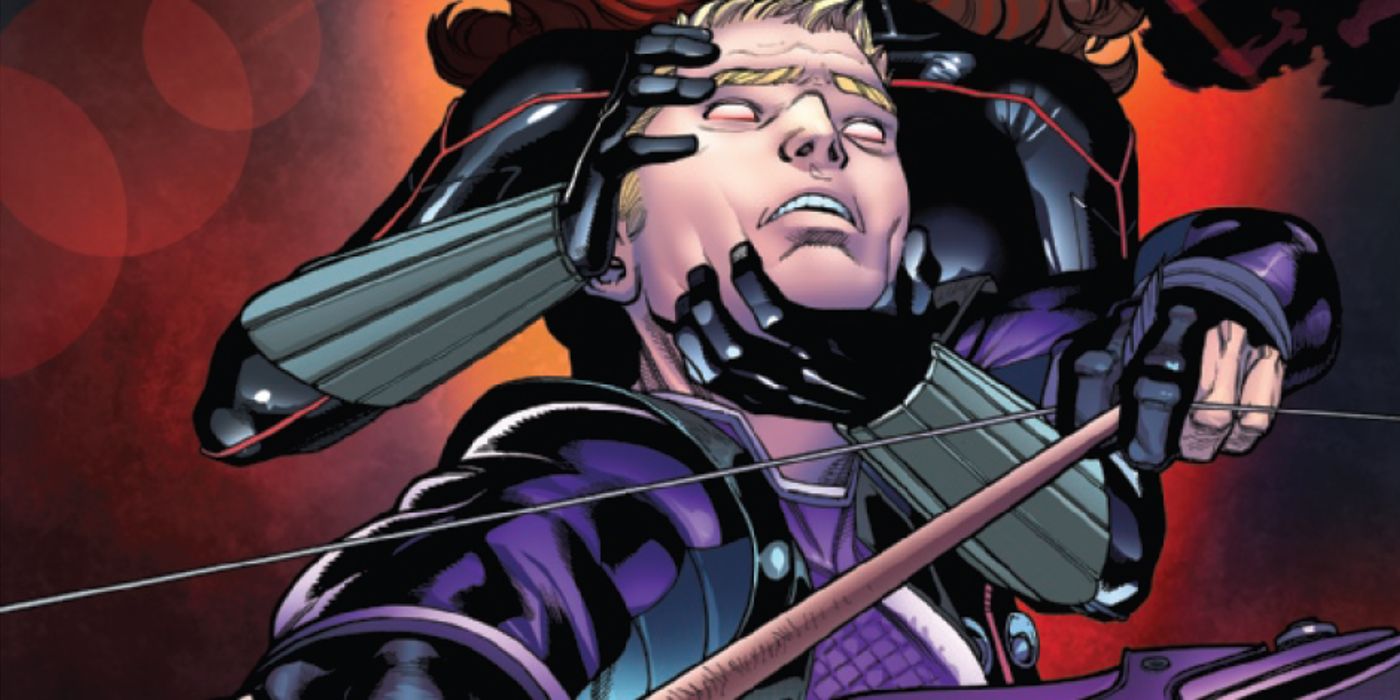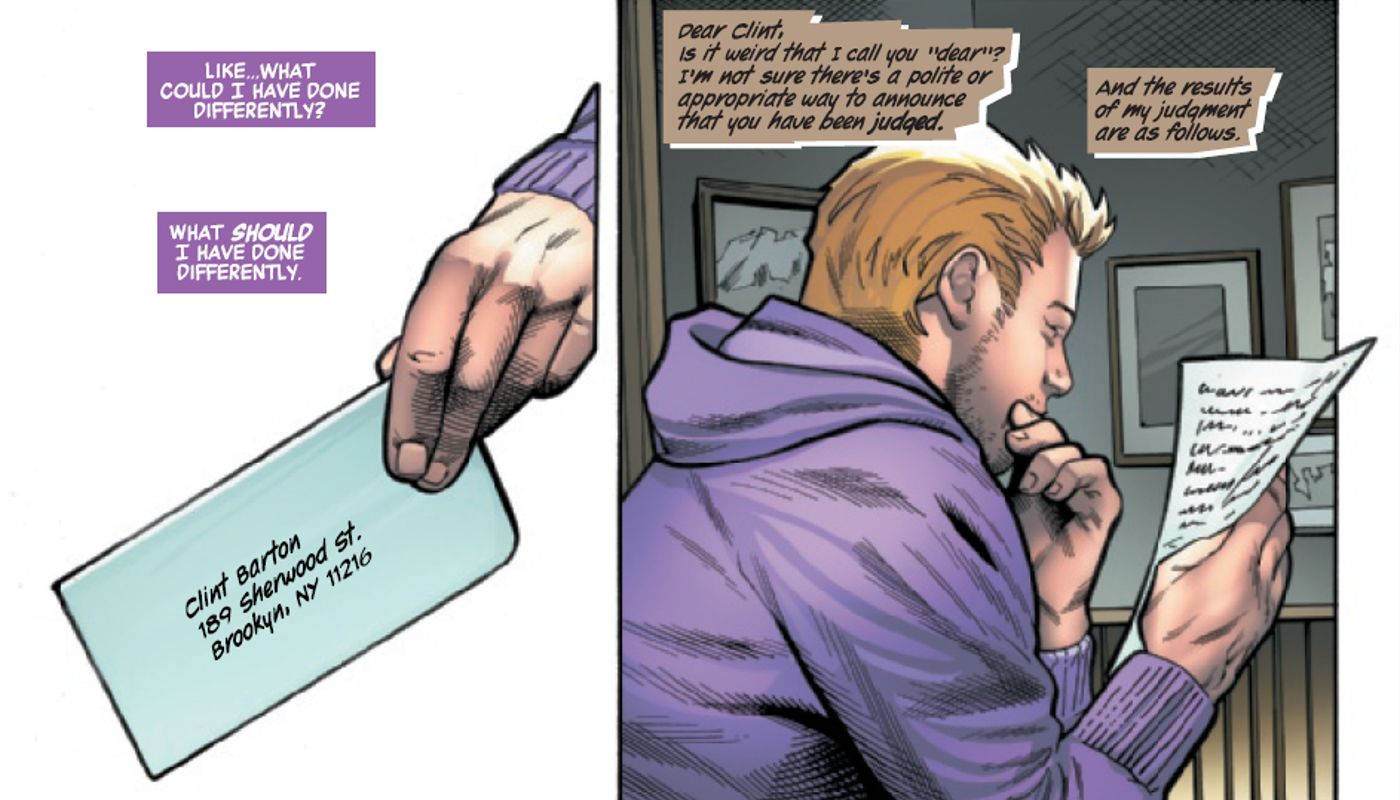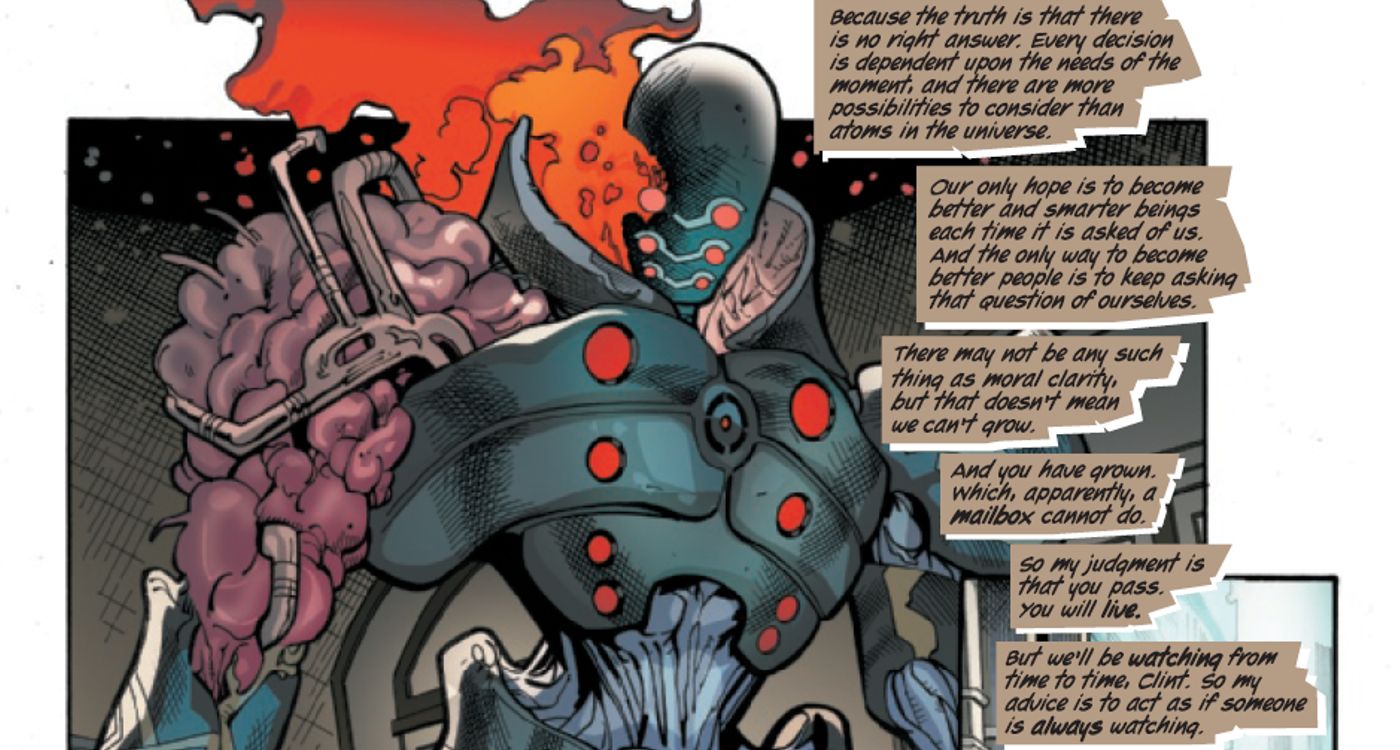The following contains major spoilers for Avengers #60, available now from Marvel Comics.
With the resurrection of the long-dead Celestial known as the Progenitor, the world as we know it found itself facing Judgment Day along with every person in it. While the judgments of some have already shown the Progenitor to have a twisted view of those it now lords over, others have proven it to be more than capable of accurately assessing a person's worth. In the case of Clint Barton, however, Earth's latest cosmic deity has only proven that even it cannot parse all the nuances behind morality as a concept, and in doing so it has been outed as Judgment Day's biggest hypocrite.
Despite the ever-present threat of oblivion at the hands of the Progenitor, Avengers #60 (by Mark Russell, Greg Land, Jay Leisten, David Curiel, and VC's Cory Petit) finds Hawkeye going about his business in his usual manner. Even after being visited by the Progenitor, Clint can't quite bring himself to take the situation seriously. Though he does grapple with the finer points of morality and what good or bad his line of work ultimately does, the thought of this newly returned Celestial passing absolute judgment on everyone is laughable to him. This isn't just because the standards by which people are being judged seem arbitrary, although that certainly doesn't help. Rather it is the fact that the Progenitor can't even determine for itself whether Hawkeye is worthy before it decides that he has been found worthy.
Just as Clint wonders for himself, the Progenitor understands that above all else, nuance matters. There is surely something to be said about the end results of one's actions, just as there is something to be said about the intent of those actions. These certainly matter. When Hawkeye takes it upon himself to put a stop to the assassin Crossfire's latest hit job, he does so without any major collateral damage and without putting anyone else in harm's way.
Hawkeye also manages to save a life, although not necessarily one that he should have. As it turns out, Crossfire was tasked with assassinating a black market arms dealer whose continued survival will only sentence countless others to their own grim demises. Obviously, this presents a problem in terms of the overall impact of Clint's actions, but not through any fault of his own. As far as he could tell, he was simply saving a life, and as far as his own actions go, that is precisely what he accomplished.
If the Progenitor is going to account for every past or future victim of the man Hawkeye saved as a mark against the hero, there would be no chance for him or any other Avenger to ever be deemed worthy of continued survival. The simple fact that so many superheroes choose not to kill their enemies, even if it means potentially allowing future tragedies to take place, would make them accomplices to those crimes under such skewed logic. Luckily, that doesn't seem to be the logic the Progenitor has employed when judging Hawkeye, and with any luck that will make the Celestial reconsider its previous judgments, as well.
While Clint got to pass thanks to the complicated and convoluted nature of morality as a concept, the Progenitor hasn't been so kind to Captain America. In Steve Rogers' case, the Progenitor decided that he was a failure for the failures of the nation he represents as a whole. In putting the weight of an entire country on Steve's shoulders while simultaneously giving so much more grace to other, similar heroes, the Progenitor has proven itself to be an unreliable judge at the very least. Assuming they are able to come to terms with that, the very same Celestial who started Judgment Day might end up being the one to call it off.



